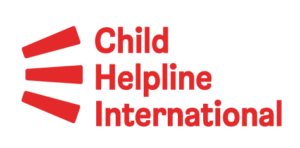Mental health is an essential and integral part of individual’s overall health. Mental health issues have a significant impact on a person’s quality of life, their self-esteem and self-image, their relationships with others, and therefore, their broader community.
The period of childhood and adolescence presents unique challenges and difficulties for children, youth and their parents. During this period, children and their parents may face numerous worries, questions and unpleasant feelings such as fear, sadness, anger, worry and guilt.
Brave Phone is an anonymous, free and confidential counseling line for children, teenagers and adults who have issues and concerns related to the child development, safety and well-being in Croatia.
The role of counselors on counseling lines is to listen to the caller, find out more about the situation they are in, support them in dealing with worries and cooperate with them in order to devise guidelines and steps they can take to deal with the difficulties more easily.
The calls are answered by students who are educated and trained in the field of telephone and e-counseling of children and parents. The counseling lines are open every working day from 9 AM to 8 PM. In addition to telephone lines, we are available to our callers via chat on weekdays from 3 PM to 7 PM and via e-mail. Our goal and task is to empower children and parents to cope more easily with the difficulties they have, provide them with timely and accurate information, emotional support and offer them contacts of experts they can turn to if they need some form of professional help.
Europe’s main reported topic is suicidal thoughts and/or suicide attempts.
Over the last couple of years, we have registered a large number of contacts to our helpline, chat and e-mail services on the topic of suicidal thoughts and/or suicide attempts. With regards to the level of risk assessed in the contacts, they can be roughly divided into three categories:
- Reporting suicidal thoughts with no current plan to commit suicide
- Reporting suicidal thoughts with a current plan to commit suicide
- A contact made in the middle of a suicide attempt (for example, after taking a large dose of pills)
*all of the mentioned categories are considered a higher risk if there is a previous suicide attempt and if there are little to no supporting factors in the child’s environment
The majority of these contacts led to counseling calls (74%) , while others led to informative calls (26%), as those were the ones made by adults with a lower suicide risk. Those callers were generally given initial support and additional contacts of crisis helplines and other sources of available help for them. In case of calls made by children and adolescents, as well as all calls made with a high risk of committing suicide (for example a current plan with previous attempts, or a contact in the middle of a suicide attempt), a counseling call was made.
Such calls included a lot of active listening, reflecting emotions and helping the caller ground and relax enough to be able to contact a crisis helpline/ambulance or, in the instance of calling in the middle of a suicide attempt, maintaining contact with the caller while the ambulance/police arrives to their location in order to provide needed support.
By: Hrabri Telefon

